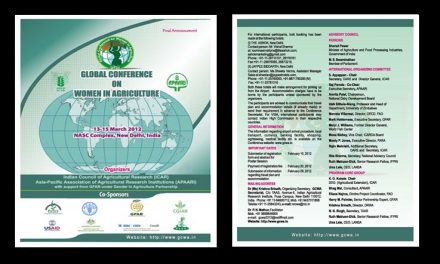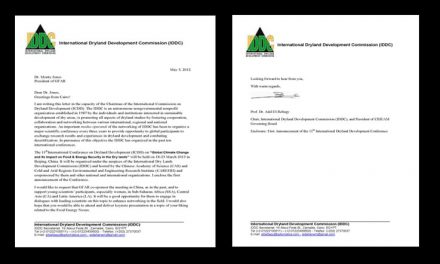Asia-Pacific Association of Agricultural Research Institutions (APAARI) in partnership with Australian Center for International Agricultural Research (ACIAR), Global Forum on Agricultural Research (GFAR) and Malaysian Agricultural Research and Development Institute (MARDI) are organizing a capacity development workshop on Planning, Monitoring and Evaluation towards Measuring Outcomes and Impacts on 3-7 August 2015 at MARDI, Kula Lumpur, Malaysia.
The main objective is to enhance the understanding, skills, and capacities of these focal persons in applying and implementing appropriate tools/methods of planning, monitoring and evaluation, covering outcomes and impacts, so that these trained persons in turn can help develop these capacities not only in their parent organizations but also among their partners. The use of M&E in developing evidence to support policy decisions is another very significant application.
Training methods and processes
The aim of the evaluation training workshop is to provide participants with a shared understanding of frameworks and processes for developing and implementing project evaluation. This evaluation workshop has a strong focus on evaluation within the project life-cycle, including PM&E of information and knowledge management projects.
The framework and tools presented are designed to assist project teams in project design and implementation. Moreover, the knowledge gained through evaluation about the merits and worth of project activities, outputs, outcomes and final impacts should increase the likely success (in terms of community-level impact) of the existing and future research projects.
The focus of the workshop is on the participants developing evaluation plans for agricultural research and information projects. Presentations on necessary background information and evaluation concepts are given. In addition to a comprehensive set of notes, participants use a workbook to help them work through the steps required to orientate their research project and develop an evaluation plan. Each group is required to present their completed impact pathway and evaluation plan for their project at the end of the workshop. The workshop participants are also suggested to bring their own case studies of real life.
Duration of training
This workshop will be organized over a period of five days to give the participants’ time to absorb and use the key concepts and processes.
Participants
The workshop program is designed for project team leaders/ directors of planning and evaluation and members who are, or are likely to be, involved in orientating, planning and evaluating agricultural R&D and information projects. It is equally suited to social, biological scientists, research planners, and research managers. It is expected that such trained participants should be able and be required to carry out such capacity development exercises in their own organizations and countries.
Trainers/Resource Persons
- Dr Deborah Templeton will be the main resource person to provide the training. She was previously the Research Program Manager of the Impact Assessment Program at ACIAR. She has organized a number of evaluation training courses while working at both ACIAR and the International Rice Research Institute (IRRI) to staff at the respective organizations, and to project team members. These evaluation workshops have been held in Australia, Cambodia, China, Ethiopia, Fiji, India, Laos, Nepal, Pakistan, Papua New Guinea, the Philippines, South Africa and Vietnam.
- Dr Ajit Maru is Senior Knowledge Officer of GFAR. He is tasked for GFAR Theme of Action on Agricultural Knowledge for All, in which there are activities for strengthening Information Management for agri-food systems, opening access to agricultural data, information and knowledge, enabling effective use of agricultural information and forward thinking ICT use in agriculture.



